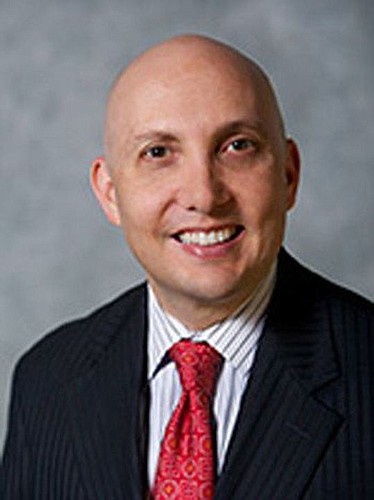
Most everyone has an opinion and emotions — strong ones — about the shooting death of Michael Brown and other recent deaths of African-American men during exchanges with law enforcement officers.
Members of the legal community are no different — many have strong opinions and emotions.
This article is not intended to advocate a particular viewpoint; rather, it is intended to identify the important and unique role that we as lawyers can and should serve in diffusing and directing the understandably strong emotions surrounding this and other polarizing subjects.
Simply put, we have a responsibility to turn moments like this into movements for positive change, rather than permitting them to devolve into hostile exchanges that exacerbate the underlying social instability that was the catalyst.
There are three skills possessed by effective lawyers that are perfectly suited — in fact they are essential — to transform hostilities into positive discourse: listening, standing against angry attacks, and seeking to understand alternative perspectives.
Listening
Even though we are trained advocates, at times like this it is more important that we listen.
Listen to those who are hurt, those who are angry, those who feel disenfranchised, those who feel threatened or afraid.
Seeking to understand someone — even someone with whom we disagree — is a way of protecting (or to borrow a phrase from the Bible, “loving”) our neighbor and our community.
It does not mean we accept that person’s viewpoint as valid, right or helpful. On the other hand, our own views may be in need of the testing and expanding that comes from sensitizing ourselves to alternative perspectives.
Stand up against angry attacks
On the big issues of the day, big debates, we can easily become smug and over-confident in what we think that we know.
Indeed, there are television networks on both sides of the political fence that exploit this tendency. At best, this dynamic drives the converted to their preachers. At worst, it expands a very raw social divide through personal, angry attacks.
Anger also is a natural outflow of perceived injustice. But anger without positive action serves only to destroy the angry and antagonize the person who is angry.
There is, however, a place for righteous indignation. If it is righteous, the energy that it produces should lead to alignment with positive, transformative action.
Times of perceived injustice are ripe for transformation. However, they also are ripe for anger, bitterness and violence. When the latter predominate, injustice prevails; overshadowed by the angry response, the opportunity for transformation is lost.
We have a responsibility to speak out against angry personal attacks and to demand more intelligent, more compassionate, discourse, even – in fact, especially – from those with whom we agree.
We cannot simply smile approvingly or roll our eyes when the hatefulness (prevalent on all sides of polarizing issues) is spewed. We can and should do our part to curb it.
Consider alternative perspectives
The world’s biggest problem is ignorance. It can be solved only through learning.
Moments like this exacerbate the underlying fear and suspicion. Understanding, and the trust that derives from it, can be the relational glue to heal social divides.
Without trust, healing and true change are impossible. So how can we be instruments for understanding?
First, by exposing ourselves to perspectives that are not our own. Regularly get into an environment in which the dominant view and majority culture are not your own.
Second, avoid the temptation to rebut, seeking instead simply to understand the seeds from which an alternative perspective has grown.
And third, facilitate the exchange of alternative views by modelling and encouraging respectful, intelligent dialogue, around the dinner table, at the water cooler, at cocktail parties, in professional settings and wherever you are.
So, my fellow lawyer, without sacrificing your own opinion and emotion, I urge you to take the steps needed — every chance you get — to encourage and participate in intelligent discourse on volatile social topics and stand-up against destabilizing, divisive stereotypes, angry vilification and politically charged generalities.
We are called to do better than that — to help turn moments into movements for positive social change.
Mike Freed is a Gunster shareholder, a former Jacksonville Bar Association president and the JBA’s delegate to the American Bar Association.